Interview with Gregory John Smith: Rescuing street children in Brazil, and keeping them from getting there in the first place.
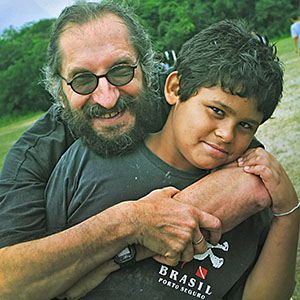 Gregory John Smith had a nice life in Norway. He had a family, a successful career as an art and antiques dealer and a home with, as he puts it, “all the luxuries one can imagine.”
Gregory John Smith had a nice life in Norway. He had a family, a successful career as an art and antiques dealer and a home with, as he puts it, “all the luxuries one can imagine.”
But something kept gnawing at him. It was the desire to do more; to do something that would make the world a better place.
“I was just not satisfied with the comfortable life, well knowing of the suffering children I had seen so many times before during my travels,” Gregory said.
A lifetime of experiences had fed his desire to help others. As a boy, he had traveled the world with his parents, living among the rich and poor. He later traveled to Eastern Europe and India, where he saw the crux of extreme poverty and indifference affecting the children who lived there.
The turning point, though, was watching the award-winning film Pixote, which documents the life of a young boy who lives on the streets in Brazil.
“I was astounded by the tragic situation and violence facing street children in Brazil and the film ignited once again my desire to do something about it,” Gregory said.
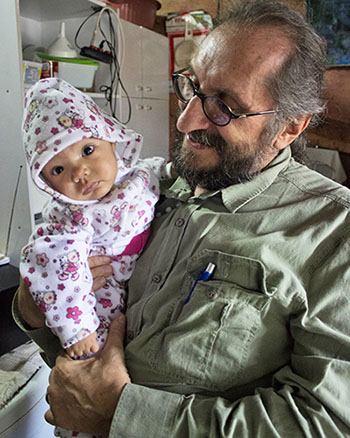 On his 40th birthday, Gregory sold his house and possessions to move to Brazil, donating the profits to Children At Risk Foundation, a foundation he started to fund his work. He left his peaceful Norwegian city with two suitcases in hand, basic Portuguese, and little idea of where this next phase in his life would take him.
On his 40th birthday, Gregory sold his house and possessions to move to Brazil, donating the profits to Children At Risk Foundation, a foundation he started to fund his work. He left his peaceful Norwegian city with two suitcases in hand, basic Portuguese, and little idea of where this next phase in his life would take him.
Gregory started by living on the streets of São Paulo, where he gained insight into why children live on the streets.
“I was disturbed with their reasoning for being on the streets in the first place and the fact that they always expressed that it was fine to be on the streets when in reality, I was constantly witness to many tragic events and the sad consequences the streets had on their lives,” Gregory said. “I needed to understand the children better; I needed to discover why they would seemingly run away from what we had to offer them and to discover the right pathways for them to make the right choices.”
Today, Gregory is still living in Brazil, where he has impacted the lives of thousands of children. His organization, Rede Cultural Beija-Flor, sister organization of the Children At Risk Foundation, not only enables street children to take control of their own lives, but prevents children from ending up on the street in the first place by helping them find a positive way to survive and thrive in the community. (RCBF in Brazil and CARF in Norway are two independent foundations, but strongly connected.)
Gregory talked with us about living on the streets of São Paulo, challenges facing children in Brazil, and what it means to receive our 2014 Humanitarian Award.
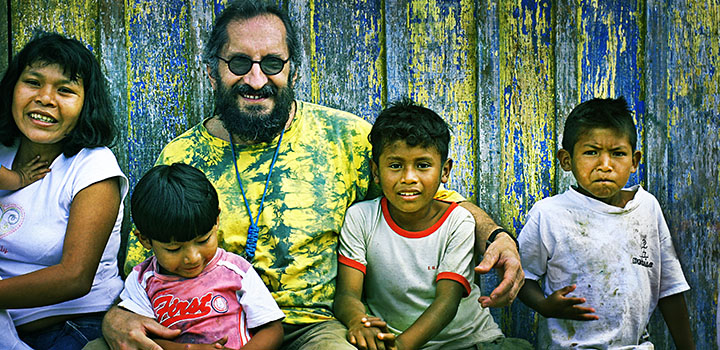
How did your experience living on the streets of São Paulo help you to better serve children in need?
During my first months on the streets, accompanying a group of no less than 26 street children, I was disturbed with their reasoning for being on the streets in the first place and the fact that they always expressed that it was fine to be on the streets when in reality, I was constantly witness to many tragic events and the sad consequences the streets had on their lives. I needed to understand the children better; I needed to discover why they would seemingly run away from what we had to offer them and to discover the right pathways for them to make the right choices.
I had seen that running away from social projects that were supposedly devised to attend the street children’s demands was commonplace, that really none of the 32 social entities working with street children at the time, could hold on to their children for more than a few days at a time. They would say it was the drugs, but in reality the drugs were merely a symptom, because the true addiction was street life itself and their interpersonal relationships. Most of the organizations working with the children were limited to serving them on the streets, but to remove them from that reality was quite another question and one with very few answers.
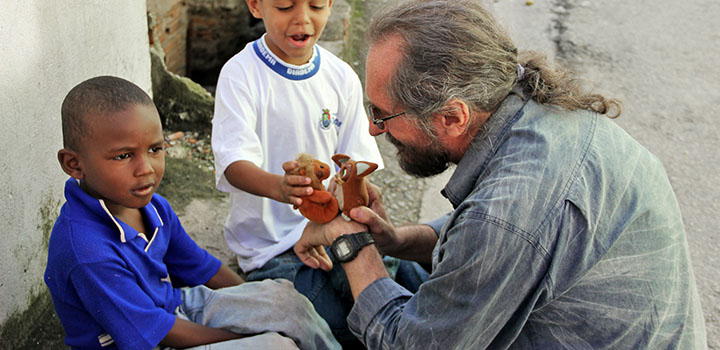
If the children ran away to the streets more than three times, the organizations would just drop them. It was this street addiction I needed to unravel, so the only way for me to do so and at the same time conquer the children’s confidence, was to live together with them during longer periods of the day and night when they were most active on the streets. Sleeping through the night with them was not uncommon for me.
What do you think is the number one challenge you face serving children in Brazil?
To offer our children a better quality of education is by far the number one challenge in our project, in a country where education completely lacks priority, especially among the poorer classes, which directly affects the reproductive cycle of poverty. Without better education our children will be unable to discover solutions to the social problems facing them and their communities and will continue to live in poverty, causing more children to lose their lives to the streets, drugs and crime.
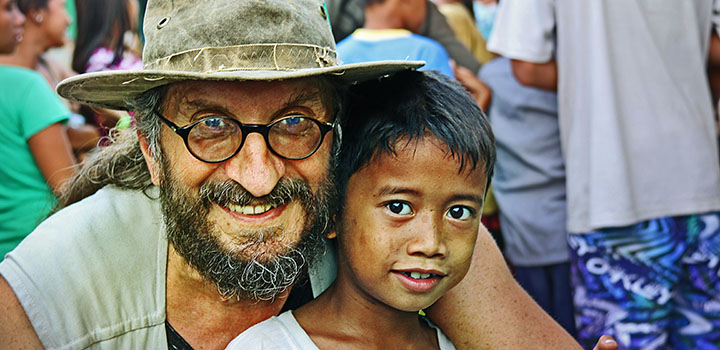
What does it mean to you to win a World of Children?
In undertaking my mission for the street children in Brazil, I did not look for fame nor fortune, nor gratitude or acknowledgement. My aim was to merely save the life of one child lost to the streets and if I could manage to do so I would be a very happy man indeed and my entire investment would be worthwhile, because life is the most precious thing we have on this planet and it must be respected at all costs. Twenty-one years later I can safely say that my organization has saved many lives and our task in doing so has been burdened with many tough moments, but also rewarded with many glorious ones.
My undertaking is long-term, because the lives we touch are also long-term, many of them having to carry past burdens in their baggage for the rest of their lives and because of those burdens we cannot expect too much gratitude from the children we help, although I do expect their respect as I too must respect them. So, receiving an award such as this one for our efforts with the children, which in turn raises our own self-esteem by acknowledging the fact that we are doing something good for them, makes me feel great humbleness, mainly for having been allowed to get involved in their lives in the first place, without their permission. Therefore I share this award with all the children who have been touched by us, because they are the true winners.
On November 6, Gregory John Smith will be honored in New York City with the 2014 World of Children Humanitarian Award at our annual Awards Ceremony along with 5 other extraordinary changemakers for children. Learn more >>